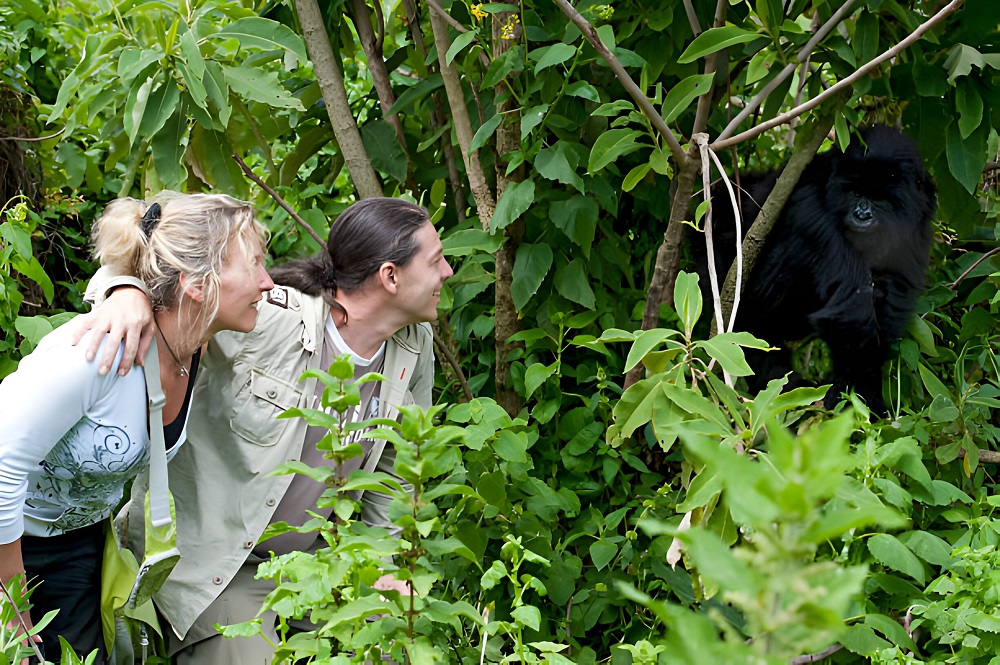East Africa is a region of remarkable natural beauty, abundant wildlife, and vibrant cultural heritage. As tourism in the area continues to expand, the importance of traveling responsibly has never been greater. Preserving the region’s unique ecosystems and cultural traditions is essential to ensure that future generations can experience its wonders. This guide explores sustainable and eco-friendly travel options across East Africa, emphasizing the importance of eco-tourism and responsible travel practices that support conservation efforts and local communities.

The Rise of Eco-Tourism in East Africa
Eco-tourism is a responsible form of travel that emphasizes the protection of natural environments and the empowerment of local communities. In East Africa, eco-tourism plays a vital role in safeguarding the region’s rich biodiversity while contributing to sustainable economic development.
Key Aspects of Eco-Tourism in East Africa:
Conservation Efforts: Many eco-tourism initiatives are directly linked to wildlife conservation projects aimed at protecting endangered species and preserving their natural habitats. These efforts are essential to maintaining the ecological balance and ensuring the survival of iconic African wildlife.
Community Empowerment: Eco-tourism supports local communities by creating employment opportunities, promoting locally-owned enterprises, and fostering cultural exchange. Through responsible travel, visitors help drive grassroots economic growth and contribute to the well-being of the people who call these regions home.
Responsible Travel Tips for East Africa

Travelers can play a vital role in protecting East Africa’s natural and cultural treasures by embracing responsible and sustainable travel practices. Here are key tips to help minimize your environmental impact before, during, and after your journey:
Before You Travel
Choose Eco-Conscious Providers: Select airlines, lodges, and tour operators that are committed to sustainable practices, such as reducing carbon emissions, supporting conservation, and empowering local communities. Look for eco-certifications or sustainability pledges.
Pack Smart and Light: Traveling with minimal luggage not only reduces fuel consumption but also encourages a more mindful journey. Bring reusable essentials like water bottles, shopping bags, and utensils to avoid unnecessary waste.
During Your Trip
Reduce Waste: Say no to single-use plastics and make use of recycling facilities where available. Carry a reusable water bottle and avoid over-packaged goods.
Respect Wildlife and Nature: Observe animals from a safe distance, never feed them, and avoid actions that could disturb their natural behavior or habitats. Stay on designated paths and follow the guidance of trained guides.
Support Local Economies: Choose locally owned accommodations, eat at local restaurants, and purchase handmade crafts or services from community-based businesses. This helps ensure that your spending benefits local families and preserves cultural heritage.
After Your Trip
Continue Your Support: Consider donating to or volunteering with conservation organizations that work to protect East Africa’s wildlife and ecosystems. Sharing your experiences can also inspire others to travel responsibly.
Conservation-Focused Tours and Activities

Choosing tours and activities that contribute to conservation and community development is one of the most impactful ways to make your journey more meaningful. East Africa offers a wide range of responsible travel experiences that align with sustainable tourism principles and provide deep, authentic connections to the region’s wildlife, landscapes, and people.
Wildlife Conservation Tours
Maasai Mara Conservancies (Kenya): These community-managed conservancies work in partnership with local Maasai landowners to protect wildlife habitats while providing economic benefits through eco-tourism. Visitors can enjoy intimate safari experiences while directly supporting conservation and community livelihoods.
Serengeti Cheetah Project (Tanzania): Join researchers in the Serengeti to observe and learn about cheetah behavior, threats, and conservation strategies. This unique tour offers an educational experience that directly supports efforts to protect this vulnerable species.
Community-Based Tourism
Cultural Immersion Tours: Engage meaningfully with East Africa’s diverse cultures by visiting local villages, participating in traditional ceremonies, and purchasing locally made crafts. These experiences not only foster cultural exchange but also help preserve heritage and generate income for communities.
Volunteer Programs: Take part in community-driven initiatives focused on education, healthcare, sustainable agriculture, or environmental protection. Many organizations welcome short- and long-term volunteers to contribute their skills to meaningful local projects.
Gorilla Trekking Experiences
Bwindi Impenetrable Forest (Uganda): Trekking through this UNESCO World Heritage Site offers a once-in-a-lifetime opportunity to observe endangered mountain gorillas in their natural habitat. Permit fees directly support gorilla conservation and fund community development projects in surrounding areas.
Volcanoes National Park (Rwanda): Home to a significant population of mountain gorillas, this park offers regulated trekking experiences that are central to Rwanda’s conservation success story. Visitor fees help fund anti-poaching efforts and community initiatives that enhance the livelihoods of local residents.
The Future of Sustainable Travel in East Africa
The outlook for sustainable travel in East Africa is both optimistic and inspiring, as a growing number of travelers seek experiences that align with environmental stewardship and cultural respect. As awareness of responsible tourism increases, so does the region’s potential to protect its natural treasures and uplift local communities.
Key Insights:
The Rise of Eco-Tourism: With heightened global awareness around climate change and biodiversity loss, eco-tourism is rapidly gaining momentum across East Africa. This shift is encouraging the development of environmentally conscious lodges, conservation-focused tours, and community-based tourism initiatives.
The Traveler: Travelers hold the power to shape the future of tourism through their choices. By prioritizing sustainability—whether through selecting eco-certified accommodations, supporting local artisans, or respecting wildlife—tourists become vital partners in conservation and community development.
Sustainable and eco-friendly travel in East Africa offers more than just unforgettable experiences; it creates lasting benefits for the environment and the people who call this region home. By choosing responsible travel practices, supporting conservation efforts, and embracing the cultural richness of East Africa, you contribute to a more sustainable future for all.
Start planning your eco-conscious adventure today—and experience the breathtaking beauty of East Africa with purpose and respect.
“Ready to make a difference while exploring the beauty of East Africa? Contact us to find out about our eco-friendly tours and sustainable accommodations for your next adventure!”





